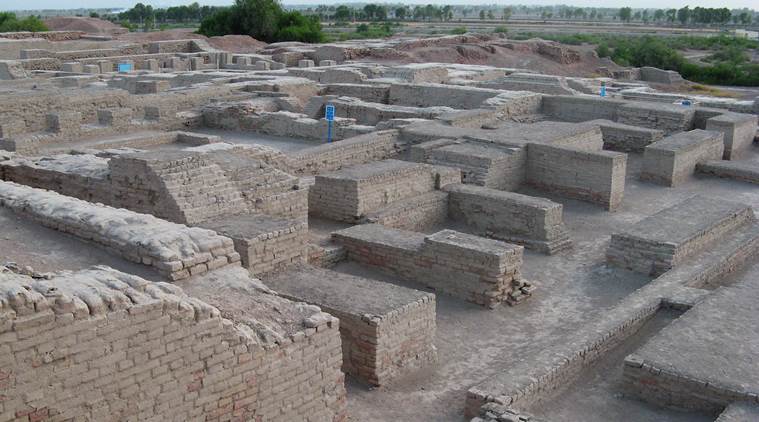
Indian archaeologists would not be carrying out excavations at the Harappan site in Mohenjo Daro, located in the Sindh province in Pakistan, anytime soon, as the neighbouring country is severely cash-strapped and planning excavations is not among its top priorities.
In April last year, an international delegation of archaeologists, including Vasant Shinde, vice-chancellor of Deccan College, Pune, was invited to Pakistan. During a tour to Mohenjo Daro, the Pakistani excavators sought help from India in planning conservation activities and excavations at the Harappan site. But, nearly 10 months since the visit of the international experts, there has not been any progress in the proposed collaboration. A full-scale scientific exploration has never been carried out at Mohenjo Daro. It has been over seven decades since Indian teams carried out some preliminary works there, prior to Partition.
Speaking to The Indian Express, Shinde said, “It seems that the excavation at Mohenjo Daro will not happen, as the government there appears to have different priorities… the economy of Pakistan is not in a good shape, which means that a project of this kind will be a luxury at the moment.”
Shinde was the only Indian delegate in the international team that had visited Mohenjo Daro in early 2018. During the tour, it was discovered that most remains at the Harappan site, located on the other side of India’s border, was not maintained well, despite best efforts taken by the local excavators. The archaeologists even shared that some of the large boulders were reportedly stolen and there was an urgent need to preserve the archaeological site.
“We need to excavate the entire Harappan site, though it is across the border. This alone will give a holistic picture about the civilisation. Presently, we only have information gathered from the Indian side. But we have not been granted permission to visit the site as yet,” he said.
Before reaching out to its neighbours, Pakistani archaeologists had tied up with some European and American archaeologists to carry out excavations at the site.
He said, “But, due to vast differences in methodology applied for the local conditions here, the excavations were not fruitful. India was preferred as a collaborator because of climate-suitable methods that have been applied at the Indian sites,” said Shinde.